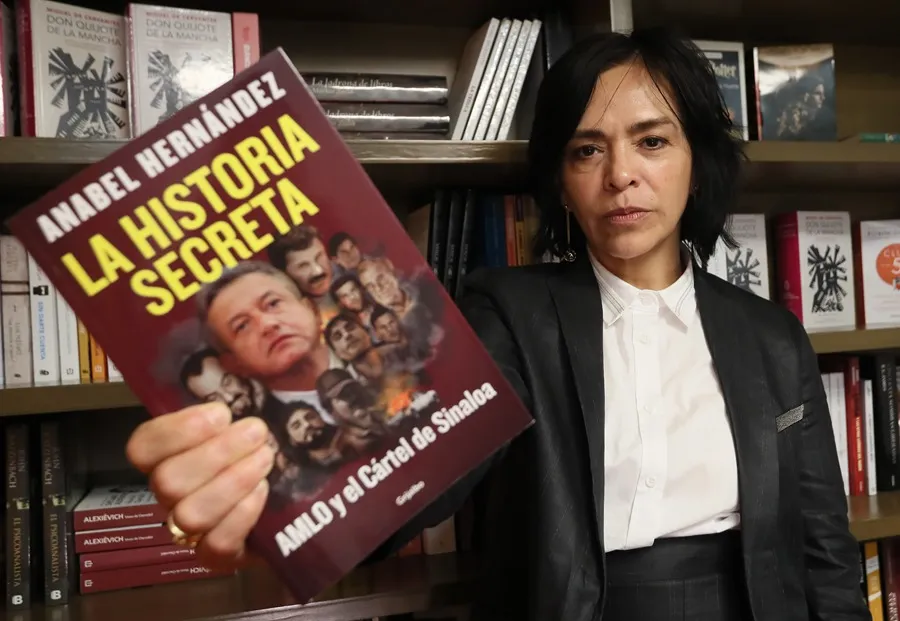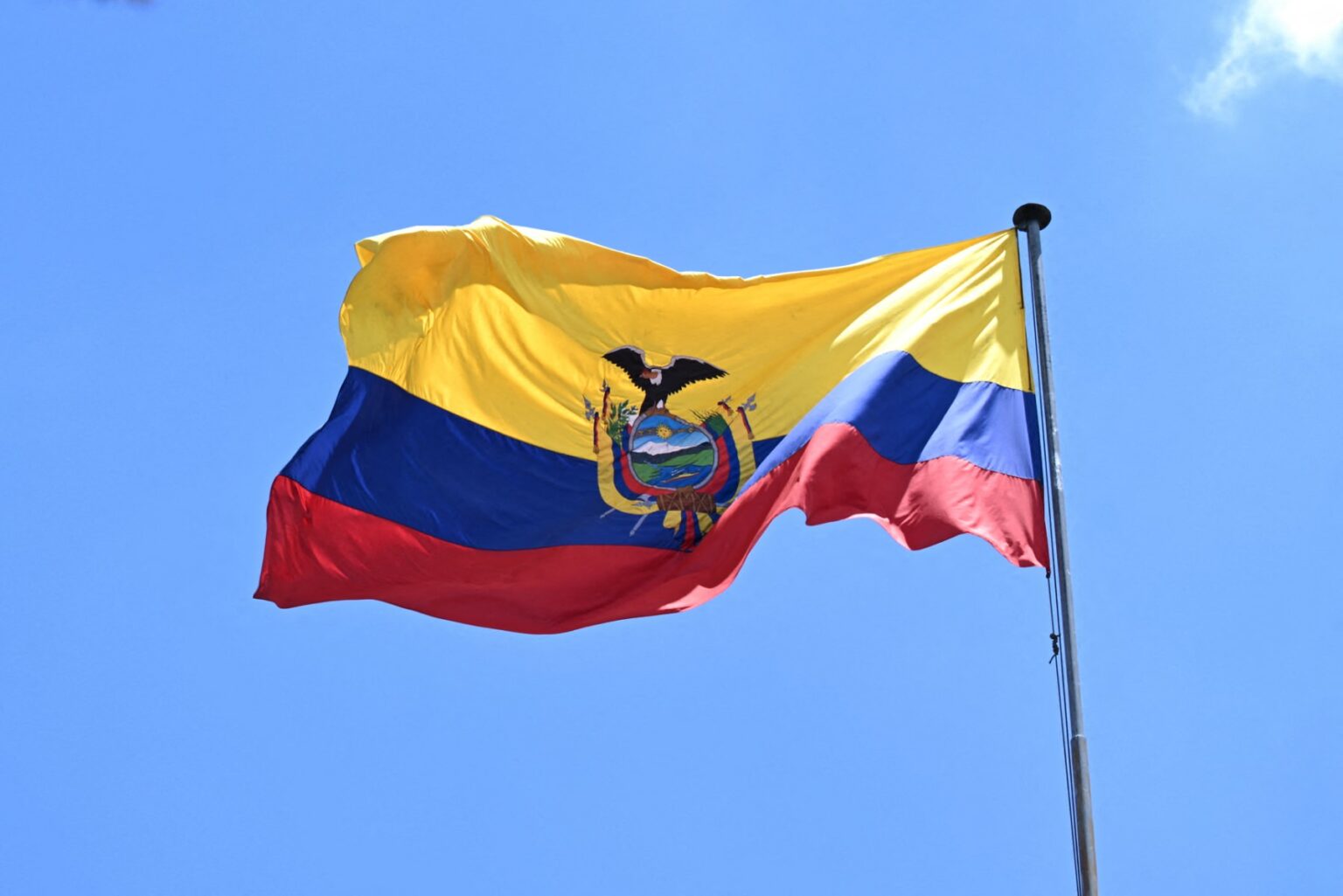International
Mexican journalist Anabel Hernández denounces the president’s censorship of her book on drug trafficking

Mexican journalist Anabel Hernández accused in an interview with EFE the Government of Andrés Manuel López Obrador of exercising a “terrible censorship that suffocates” to her new book ‘The Secret Story: AMLO and the Sinaloa Cartel’, on social networks and media, which she compared to the threats she has previously suffered for her publications.
“It’s a virtual murder when they don’t let you say things, when they don’t let you communicate, when, on the one hand, they take away any possibility of explaining the investigation,” Hernández said.
“On the other hand, the President of the Republic has the monopoly of communication, through his ‘morning’ conference, where there are already several occasions that disqualify me and disqualify my work. There are insults, there is machismo, there is misogyny,” he continued.
Mexico is the war-free country with the most journalists killed in the last decade, according to figures from Reporters Without Borders (RSF), an organization that has also denounced the increase in the hostilities of the current government towards this profession, which increases the danger of exercising it.
Anabel Hernández, who has suffered these aggressions, recalled her colleague Javier Valdez, executed after publishing about Los Chapitos in Sinaloa, a “very painful” experience that the author mentions in the book.
“Althout Javier and I didn’t talk very often, when we talked and looked at each other, it was very deep because we both lived in terrible isolation,” he described.
“Because after you receive death threats, you are not thinking only of yourself, but of ‘if someone comes and shoots me, the lady next door shoots him, or the child who is in the cinema’, or what do I know,” Hernández added.
The author of ‘Los Señores del Narco’ (2010) pointed out that at the beginning of the current government, López Obrador “congratulated” her for her investigations into Genaro García Luna, former Secretary of Security of the presidency of Felipe Calderón (2006-2012), now imprisoned in the United States for the revelations she published 14 years ago.
“Only now that he is the one who is being investigated, now he does denoy journalism. No, the power does not understand that journalists are not here to applaud it, we are to investigate it,” he said.
The journalist explained that “there are two key witnesses who testified against García Luna in New York,” who also pointed out López Obrador’s links with the cartel.
One, according to Anabel Hernández, is King Zambada, “who has already declared in court, in a trial that did give money to López Obrador’s campaign.”
And the other is “Sergio Villarreal Barragán, alias El Grande, who has also already declared in the PGR (extinct Attorney General’s Office) and in the trial of Genaro García Luna,” about the links of both politicians with organized crime.
In addition, Hernández defended that his sources are “direct witnesses” of the facts, which is not easy to process as a journalist, since it is necessary to question it and contrast it again and again, which becomes “very exhausting.”
The book is published in the middle of the campaigns before the elections of June 2 and, even, the opposition presidential candidate Xóchitl Gálvez quoted it during the last debate last Sunday.
But the journalist indicated that the work “was in process for four years” and it was not until the end of 2023 and 2024 that she found “very important” testimonies that “put the last pieces of the puzzle” with “strongness and clarity.”
“I realized that the investigation was over, seeing that there really was such solid evidence that López Obrador came to power funded by the Sinaloa cartel,” he said.
The book, based on dozens of testimonies and judicial files from the United States, narrates how the Sinaloa Cartel would have financed López Obrador’s campaigns from 2006, until the mid-term elections of 2021, when his party, the National Regeneration Movement (Morena), devastated almost all States.
In the last chapter, ‘The Heiress’, Anabel Hernández proposes that that structure will probably pass into the hands of the ruling candidate, Claudia Sheinbaum.
“What I do have are many testimonies that there are members of the Sinaloa Cartel who are calling for a vote in favor of Claudia Sheinbaum. There are those who are saying that they will be better off with her than with Obrador,” he said.
International
Colombia to Send High-Level Delegation to Ecuador to Ease Trade Tensions

Colombia’s Ministry of Foreign Affairs confirmed on Friday that, at the instruction of President Gustavo Petro, a high-level delegation will travel to Ecuador in an effort to normalize bilateral relations, which have deteriorated following the imposition of reciprocal tariffs.
“In line with Colombia’s policy of good neighborliness and the spirit of cooperation and integration that guides its foreign policy,” the Foreign Ministry said in a statement, adding that the delegation will be led by Foreign Minister Rosa Villavicencio and Defense Minister Pedro Sánchez.
“Following instructions from the Presidency of the Republic, and as has been publicly reiterated, the Colombian delegation expects to reaffirm Colombia’s offer of support to the Republic of Ecuador to strengthen control over phenomena stemming from transnational organized crime,” the statement said.
The Foreign Ministry noted that the delegation will attend the meeting with a full willingness to engage in dialogue and to seek concrete solutions to the unilateral measures that have affected the longstanding relationship between the two neighboring countries.
Trade tensions between Ecuador and Colombia escalated on January 21, when Ecuadorian President Daniel Noboaimposed a 30% tariff on Colombian products, citing a lack of cooperation in anti-drug efforts. Colombia responded with similar measures and the suspension of energy exports, while Ecuador increased transportation costs for Colombian crude oil.
Business associations in both countries have warned that the dispute is harming both economies and have called on the governments to resolve their differences through dialogue.
International
Super Bowl Halftime Show Puts Bad Bunny—and Immigration Politics—Back in the Spotlight

The long-standing argument that sports and politics should not mix may be put to the test on Sunday during the Super Bowl halftime show, which will be headlined by Puerto Rican superstar Bad Bunny, a choice that has sparked backlash from segments of the U.S. right wing.
Just one week after his headline-making appearance at the Grammy Awards—where he sharply criticized the United States’ anti-immigration policies—Bad Bunny will once again take center stage on the global spotlight with his performance at the NFL final in Santa Clara, California.
Beyond the expectations surrounding the show itself, speculation has grown over whether the artist could again use the platform to protest policies associated with the administration of former President Donald Trump, in front of an audience expected to exceed 120 million viewers in the United States alone.
In fact, one of the most popular Super Bowl prop bets this year revolves around whether the Puerto Rican singer will deliver a direct message against ICE (U.S. Immigration and Customs Enforcement), similar to the one he delivered at the Grammys last Sunday.
While few expect Bad Bunny to repeat such a pointed statement, the mere speculation highlights the delicate balance the NFL must manage during the most-watched broadcast of the year.
The world’s most powerful sports league has drawn criticism from the MAGA movement since announcing in September that Bad Bunny would headline a halftime show largely performed in Spanish.
Trump himself declined to attend the matchup between the New England Patriots and the Seattle Seahawks, despite having made history last year as the first sitting U.S. president to attend a Super Bowl. He described the musical lineup—which also includes outspoken critics such as Green Day—as “a terrible choice” that would “sow hatred.” In response, his supporters have organized an alternative event dubbed the “All-American Halftime Show,” featuring like-minded artists such as Kid Rock.
International
Venezuela Debates Broad Amnesty Law Covering 27 Years of Chavismo

Venezuela’s Parliament began debating on Thursday a sweeping amnesty bill that would cover the 27 years of Chavismo in power, while explicitly excluding serious human rights violations and crimes against humanity.
The proposed legislation, titled the “Amnesty Law for Democratic Coexistence,” was introduced by interim President Delcy Rodríguez, who assumed power following the capture of Nicolás Maduro during a U.S. military operation.
The legislative session was convened for Thursday afternoon, with lawmakers holding an initial discussion focused on the general principles of the bill. This phase precedes a consultation process with civil society, after which the proposal will move to a final debate examining each article individually.
According to a draft of the bill obtained by AFP, the amnesty would apply to individuals accused of crimes such as “treason,” “terrorism,” and “incitement to hatred,” charges that were frequently brought against political prisoners over the past decades. The scope also includes offenses ranging from acts of rebellion to punishments imposed for social media posts or messages sent through private messaging services.
The bill’s explanatory text emphasizes reconciliation, stating that it seeks to move away from “vengeance, retaliation, and hatred” in favor of “opening a path toward reconciliation.”
However, the proposal explicitly excludes from its benefits crimes such as “serious human rights violations, crimes against humanity, war crimes, intentional homicide, corruption, and drug trafficking.”
These exclusions, the text notes, are based on strict compliance with the Venezuelan Constitution, which already prohibits granting amnesties or pardons for such offenses.
-

 International3 days ago
International3 days agoEpstein Denies Being ‘the Devil’ in Newly Released Video Interview
-

 International4 days ago
International4 days agoMexico to Send Humanitarian Aid to Cuba Amid U.S. Threats Over Oil Shipments
-

 International4 days ago
International4 days agoSpain Seeks to Ban Social Media Access for Children Under 16
-

 International3 days ago
International3 days agoDelcy Rodríguez Takes Control of Chavismo as Venezuela Enters a U.S.-Supervised Transition
-

 International4 days ago
International4 days agoPetro Resumes Extraditions, Sends Top Criminal to U.S. Before White House Talks
-

 International4 days ago
International4 days agoMexico Arrests Suspect in Shooting of Sinaloa Lawmakers
-

 International3 days ago
International3 days agoHRW Warns Trump’s Influence Has Weakened Human Rights in Latin America
-

 International3 days ago
International3 days agoHypothermia Linked to Most Deaths During New York’s Recent Cold Spell
-

 Central America1 day ago
Central America1 day agoPanama Will Not Be Threatened, President Says Amid Rising Tensions With China
-

 International1 day ago
International1 day agoDíaz-Canel Calls for Talks With Washington Without Pressure as U.S. Tightens Oil Sanctions
-

 International1 day ago
International1 day agoVenezuela Debates Broad Amnesty Law Covering 27 Years of Chavismo
-

 Central America4 days ago
Central America4 days agoLaura Fernández Says She Will ‘Never’ Allow Authoritarianism in Costa Rica
-

 International11 hours ago
International11 hours agoColombia to Send High-Level Delegation to Ecuador to Ease Trade Tensions
-

 Central America1 day ago
Central America1 day agoBukele’s Approval Rating Climbs to 91.9% in El Salvador, Survey Shows
-

 International4 days ago
International4 days agoNFL Investigating Emails Linking Giants Executive to Jeffrey Epstein
-

 International11 hours ago
International11 hours agoSuper Bowl Halftime Show Puts Bad Bunny—and Immigration Politics—Back in the Spotlight


























